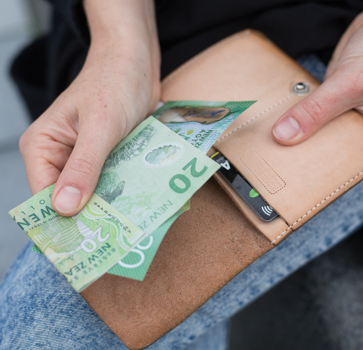Different payment methods
Buy now, pay later sales
What is buy now, pay later?
Buy now, pay later is a payment method that lets you buy an item and pay after receiving it, without any interest added to the amount you owe. Some examples of buy now, pay later schemes are Afterpay, Humm, PartPay and Laybuy.com.
You have to sign up to use these services and some conditions apply, such as being 18 years or over.
Buy now, pay later sales are different from:
- a layby sale because you get the item as soon as you make the first payment
- a credit sale because no interest is charged.
How does a buy now, pay later sale work?
Usually, at the time of the sale, you would pay for a percentage of the item, and the buy now, pay later company would pay the store the remaining cost. You’d then pay the buy now, pay later company the rest of the cost in instalments. These companies make money from their charges to the retailers.
Can I cancel a buy now, pay later sale?
Since you’ve legally bought the goods, you can’t cancel the sale once you have made that first payment. Payments are not flexible like laybys. Instead, you’ll have a locked in payment schedule (usually weekly or fortnightly) and payments might be automatically deducted from your account.
If you miss a payment, penalties will usually apply. If you have issues making repayments, we recommend you speak to a financial advisor (see: “Where to go for more support” at the bottom of this page).
What fees will I be charged?
While there are no interest charges, the catch is that if you miss a payment, default fees are charged. The fee is the same regardless of the cost of the item, and there may be further fees for amounts that aren’t paid within seven days.
Below is a table comparing the different types of buy now, pay later schemes, and the different charges that apply.
|
Interest |
Maximum limit |
Repayments details |
Late fees |
|
|
Afterpay |
0% |
Depends on your repayment history |
4 equal payments due fortnightly |
$10 |
|
Genoapay |
0% |
$1000 |
10 weekly instalments |
$10 |
|
Humm (big things) |
0% |
$10,000 |
Up to 24 months to pay fortnightly |
$10 |
|
Humm (little things) |
0% |
$1000 |
5 equal payments due fortnightly or weekly in 10 |
$10 |
|
Laybuy |
0% |
Depends on your repayment history |
6 weekly automatic payments |
$10 |
|
Zipmoney |
Interest free for 3 months from purchase then charged interest at 19.9% |
$10,000 |
Monthly- minimum payment of $40 or 3% of your balance owing- whichever is greater |
$15 |
|
ZipPay |
0% |
$1000 |
4 equal payments due fortnightly |
$8 |
The Government has recently amended the CCCFA so that it also applies to Buy Now Pay Later schemes. These changes will be in place from September 2024. You can read more about these changes on the MBIE website. For more information about the CCCFA, see: “Credit and Debt”.
Credit contracts
What are credit contracts?
Credit contracts are agreements when you buy something, and you don’t have to pay immediately, but you’ll get to take it home or have it delivered straight away. You can delay payment by either agreeing to pay interest (in other words, pay more than the original price at a later date) or provide a security interest over the item (this means the seller could repossess it from you if you don’t pay the debt in full). This includes when you use a credit card or when you buy goods and services on a hire purchase agreement.
You may agree to a credit contract when you purchase a good online, in store or from a mobile trader. Mobile traders are people who sell goods in person but don’t have a fixed location (for example, selling goods from a trading van).
If you’re buying something on credit for your personal use, you’ll have rights under the Credit Contracts and Consumer Finance Act 2003. This Act sets out certain rules and obligations for lenders. For more information, see: “Credit and Debt”.

